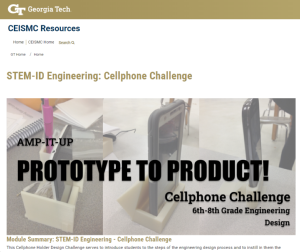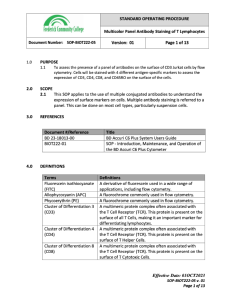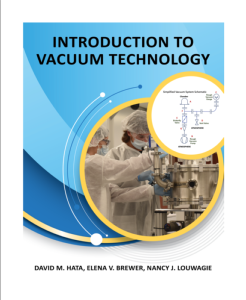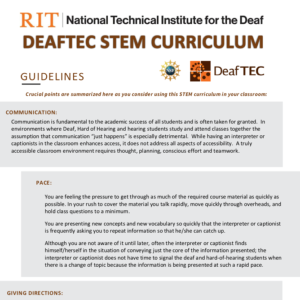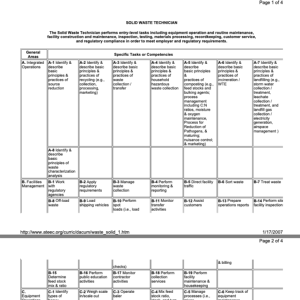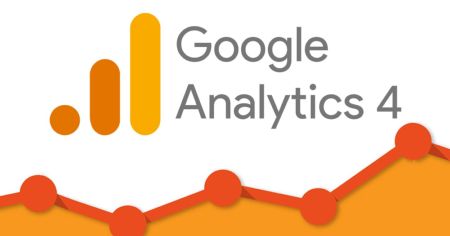ATE is Advanced Technological Education. With an emphasis on two-year colleges, the National Science Foundation's ATE program focuses on the education of technicians for the high-technology fields that drive our nation's economy.
Biomimicry: Lessons from Nature (Zoom Workshop)
Workshop
May 4 Online
The exponential increase in nanotechnology research and equipment had led to a new level of understanding of the world around us. That understanding is resulting in new applications and products.
These include glaucoma detection based on the structure in a butterfly’s wing, shark skin structures applied to airplane wings that reduces air friction and increases fuel efficiency and small stations that pull water out of desert air. The research and multiple applications rely on macro level traditional science concepts as well as phenomena that only occurs at the nanoscale. This workshop will investigate several examples of nature’s applications of nanoscale phenomena and how researchers are applying that knowledge to new products and applications. Education content applicable for integration into traditional science courses will be presented.
(View More)
2024 NACK Hands-on-Site Workshops
Workshop
May 6 University Park, PA
These workshops present overviews of the world of nanotechnology. Participants will learn about the growing applications of nanotechnology in many areas and the basics of nanofabrication processes. The three-day workshops are broken down into daily lectures by CNEU staff and lab sessions on nanofabrication in the CNEU teaching cleanroom. Additional workshop details, hotel information, and finanical support details will be included in a confirmation email.
Target audience: Post secondary and secondary science and technology educators with a desire to create additional learning opportunities for their students.
Possible Topics: Cleanroom safety, Vacuum, Evaporation, Metrology, Lithography, SEM, AFM, Etching, CVD, and ideas on how to implement these into your lessons, courses, and programs.
(View More)
Certified Information Security Manager (CISM)
Workshop
May 6 Online
This workshop is intended for community college faculty interested in becoming cybersecurity faculty or faculty wishing to expand their knowledge, earn an industry certification, and strengthen their ability to incorporate new cybersecurity content in their community college curriculum. This workshop is not intended for students or other non-faculty.
ISACA’s Certified Information Security Manager (CISM) certification indicates expertise in information security governance, program development and management, incident management and risk management. If you are a mid-career IT professional aspiring to senior management roles in IT security and control, CISM can get you the visibility you need.
(View More)
Webinar: Preparing Forms for Your NSF ATE Proposal
Webinar
May 8 Online
This webinar covers all the Forms that make up an NSF ATE final proposal submission. Topics include: (1) the purpose of various forms associated with NSF ATE proposals; (2) what data to enter into each form. The forms included are: cover sheet, project summary, project description, references cited, senior personnel forms (current and pending support, biosketches, collaborators and other affiliations), facilities, equipment and other resources, data management plan, project data form, and other supplemental documents. As a note, budget and budget justification are covered in a separate webinar. Upon completion you will know the importance of providing consistent information on all forms and recognize common errors to avoid.
(View More)
2024 National 3CS and Southeast Regional 3CS (SE3CS)
Conference
May 9 Tampa, FL
Five symposia provide the opportunity to learn, experience, and discuss the latest tools, techniques, and technologies for Teaching, Practicing, Demonstrating, and Showcasing Cybersecurity Capabilities.
3CS includes a symposium in each of the five areas below:
- Community College Cyber Summit
- Cybersecurity Science and Practice Symposium
- Cybersecurity Capability Maturity Symposium
- Cyber Technology and Careers Symposium
- Cyber Games, Simulations, and Competition Symposium
(View More)
Program Development, Articulations, Policy & Advocacy
Webinar
May 10 Online
In response to community requests, InnovATEBIO will be holding a series of community meetings organized by topic. All meetings will be Fridays from 12:30-2:00 pm Eastern time. Join presenters Friday, May 10th to talk about Program Development, Articulations, Policy, and Advocacy.
(View More)
Advanced Semiconductor Manufacturing Conference (ASMC)
Conference
May 13 Albany, NY
ASMC brings together manufacturers, equipment and materials suppliers, and academia to solve manufacturing challenges with innovative strategies and methodologies.
ASMC is the leading international technical conference for discussing solutions that improve the collective manufacturing expertise of the semiconductor industry. Solving the challenges presented by semiconductor manufacturing is a combined effort by device makers, equipment and materials suppliers, and academics. ASMC provides an unparalleled platform for semiconductor professionals to network and learn the latest in the practical application of advanced manufacturing strategies and methodologies. Technical presentations at ASMC highlight industry innovations with specific results, and select ASMC manuscripts are published in the ASMC Special Section of IEEE Transactions on Semiconductor Manufacturing.
(View More)
BioMADE Mentee Information Session
Webinar
May 14 Online
The goal of BioMADE’s mentorship program is to inspire and provide guidance to community college and university students in northern California interested in learning about bioindustrial manufacturing careers. The mentorship program welcomes learners with diverse levels of science knowledge, including undergraduates with limited science backgrounds, as well as recent graduates and those holding associate/bachelor’s degrees in both science and non-science disciplines. Attend this webinar to learn how you can get involved.
(View More)
BETO BRIDGES Professional Development Instructor Workshop
Workshop
May 15 Lemont, IL
This engaging workshop will introduce educators to national laboratory research in bioenergy. Participants will explore how the Bioenergy Research and Education Bridge (BRIDGES) Program, a case study-based bioenergy education curriculum, can be effectively incorporated into the classroom and help to educate students on this clean energy STEM pathway.
The case study-based bioenergy education curriculum is intended to be taught in diverse settings including community colleges, technical colleges, universities, and upper-level high school classrooms. Created by the U.S. Department of Energy (DOE) Bioenergy Technologies Office (BETO) in partnership with Argonne National Laboratory and Idaho National Laboratory, BRIDGES provides background and foundational materials for students and instructors with no prior bioenergy knowledge.
The agenda will include presentations by scientists, tours, discussions, and training on teaching the Bioenergy Research Education and Bridge (BRIDGES) Program case studies developed by DOE’s Bioenergy Technologies Office in partnership with Argonne National Laboratory and Idaho National Laboratory. Each BRIDGES case study toolkit includes guides for students and instructors, with a focus on careers in biofuels, plastics upcycling, sustainable aviation fuel, and more!
The workshop will take place at Argonne National Laboratory in Lemont, Illinois, and participation is by application only. Space is limited. College faculty from across the nation are invited, with priority going to applications from instructors from community colleges and technical colleges. Travel support is available for those located more than 50 miles from Argonne National Laboratory’s physical address.
(View More)
Summer of Nanopore Sequencing 2024 - Spelman College
Workshop
May 15 Atlanta, GA
Nanopore sequencing analyzes individual DNA molecules in real time, and is the “next big thing” in biology education, making real-time DNA sequencing accessible to bioscience teachers and faculty. The DNA Learning Center and Oxford Nanopore are adapting nanopore sequencing for use in education, and you can be among the first to test their integrated Oxford Nanopore MinION/DNA Subway system that can provide DNA sequencing and analysis any time, any place, by anyone, and at an affordable price. Workshop participants will each receive a $300 stipend.
(View More)
WWCode CONNECT 2024: Thrive in Tech
Conference
May 16 Online
Join technologists and industry experts from around the world for a one-day live virtual technology conference. Register for a full day of technical workshops, talks, and career networking sessions on the latest industry trends and opportunities to connect with other professionals to help you thrive in your career.
(View More)
BioMADE Mentee Information Session
Webinar
May 17 Online
The goal of BioMADE’s mentorship program is to inspire and provide guidance to community college and university students in northern California interested in learning about bioindustrial manufacturing careers. The mentorship program welcomes learners with diverse levels of science knowledge, including undergraduates with limited science backgrounds, as well as recent graduates and those holding associate/bachelor’s degrees in both science and non-science disciplines. Attend this webinar to learn how you can get involved.
(View More)
Certified Ethical Hacker (CEH)
Workshop
May 20 Online
This workshop is intended for community college faculty interested in becoming cybersecurity faculty or faculty wishing to expand their knowledge, earn an industry certification, and strengthen their ability to incorporate new cybersecurity content in their community college curriculum. This workshop is not intended for students or other non-faculty.
The Ethical Hacking workshop is an in-depth and comprehensive course that delves into the common tactics employed by hackers to breach systems. From SQL injection and spear phishing to buffer overflows, this workshop equips you with the knowledge and skills needed to defend against these attacks. By immersing you in the hacker mindset, you will gain a better understanding of how to anticipate and protect against potential threats.
(View More)
ATE Projects and Centers
Advanced Manufacturing Technologies topics include:
- Additive manufacturing
- Automotive manufacturing
- General manufacturing
Agricultural and Environmental Technologies topics include:
- Agriculture and aquaculture
- Environmental technologies
- Natural resources
- Nuclear power
- Solar energy
- Wind power
Bio and Chemical Technologies topics include:
- Biotechnology
- Chemical and process technologies
Engineering Technologies topics include:
- Electronics and controls
- General engineering
- Marine technologies
- Materials technologies
- Optics
- Space technologies
General Advanced Technological Education topics include:
- Evaluation
- Learning research
- Recruitment
- Teacher preparation
Information and Security Technologies topics include:
- Geospatial technologies
- Information and communications technologies
- Logistics
- Security, information assurance, and forensics
Micro and Nanotechnologies topics include:
- MEMS
- Microsystems
- Semiconductors
This resource, published by Georgia Tech Research Institute, features an engineering activity designed for sixth, seventh, and eighth graders. In this activity, students work with partners to design a cell phone holder for their partner's phone using a 3D modeling software. Each student will have to come up with a design that meets their partner's requirements. At the end of the activity, the phone holders will be 3D printed and presented to the class. The activity "serves to introduce students to the steps of the engineering design process and to instill in them the importance of communication, documentation, and precise measurement in the creation of new products."
The activity is divided into six sections that last two to three weeks periods. The resource includes the following:
- An 18-page teacher's activity guide
- Presentation evaluation rubric
- Engineering design process poster
- A sheet imitating a request for design proposals
- A graphic organizer comparing pitch and concept
- ...
(View More)
This 13-page resource, from Frederick Community College is a standard operating procedure (SOP) for multicolor panel antibody staining of T Lymphocytes. The SOP outlines the purpose, scope, definitions, references, safety measures, responsibilities, materials and equipment involved in the procedure. Step-by-step procedures are provided for assessing the presence of a panel of antibodies on the surface of CD3 Jurkat cells to understand lymphocyte expression profiles accurately.
Procedure steps include: confirming the cytometer is on and calibrated, preparing the sample, compensation control preparation, sample staining, setting the acquisition parameters on the cytometer, creating sample gating strategy on the cytometer, sample acquisition, data analysis, and exporting the data. Detailed steps are included.
(View More)
This 199-page textbook, provided Erie Community College, provides an introduction to vacuum technology and science, featuring topics curated to the needs of technicians in a production environment. Written by three professors/experts in vacuum technology, the textbook covers a wide range of concepts including gas load, pumping mechanisms, creating a vacuum, gas diffusion and permeation, rough vacuum systems, piping and valves, and more. Each chapter in the textbook includes a variety of sub-units and ends with a series of questions and a separate multiple-choice online quiz linked through the textbook. The chapters are as follows:
- Chapter 1: Vacuum: An Enabling Technology,
- Chapter 2: The Behavior of Gases,
- Chapter 3: An Introduction to Vacuum Systems,
- Chapter 4: Rough Vacuum Regime.
Related student lab manual with instructor guide, along with videos and labs are available to view separately.
(View More)
Collection Description
The STEM Career Awareness Curriculum, developed by DeafTEC at the Rochester Institute of Technology (RIT), provides 6th through 12th grade educators with an accessibility-minded curriculum for STEM topics to help deaf and hard of hearing students explore STEM careers and the requirements of college. The curriculum hopes to achieve the following goals:
- To start the development of a STEM based curriculum designed specifically for deaf and hard of hearing students.
- To increase educators' abilities to teach introductory STEM concepts to deaf and hard of hearing students.
- To support the development of schools and out of school time programs in the United States that include STEM-related instruction to deaf and hard of hearing students.
- To give deaf and hard of hearing students the tools they need to transition from high school to college and into a career in the STEM fields.
The curriculum's instructional approach aligns with the common core and is inquiry...
(View More)
The Advanced Technology Environmental and Energy Center (ATEEC) provides this DACUM, or curriculum development tool, for solid waste technician education. The document includes a general occupation description and details on specific job tasks in categories such as integrated operations, facilities management, equipment operations, safety, and others.
(View More)
| Active ATE Centers | 23 |
| Active ATE Projects | 299 |
| ATE Resources | 6,542 |
| New Projects/Centers | 52 |
| New Resources | 153 |
ATE Resources by Subject Area
ATE Events by Subject Area
Upcoming Event: NICE Conference & Expo
The National Initiative for Cybersecurity Education (NICE) is proud to announce the upcoming NICE Conference & Expo: Strengthening Ecosystems, scheduled from June 3rd to June 5th, 2024, at the Sheraton Dallas. This three-day event will serve as a platform for cybersecurity stakeholders to converge, collaborate, and address the pressing need to bridge the cybersecurity workforce gap.
With the theme "Strengthening Ecosystems: Aligning Stakeholders to Bridge the Cybersecurity Workforce Gap," the conference underscores the collective endeavor required to fortify the cybersecurity landscape. By uniting with key partners, participants will delve into strategies and initiatives aimed at fostering a more resilient cybersecurity ecosystem.
Supported by NICE, a program of the National Institute of Standards and Technology (NIST) under the U.S. Department of Commerce, this conference represents a significant opportunity for professionals, educators, policymakers, and industry leaders to exchange insights, best practices, and innovative approaches in cybersecurity workforce development.
Registration is now open, with regular registration available until May 14, 2024, or until capacity is...
(View More)
Deadline: ATE Future Leaders Fellows
Don't miss out on the Request for Applications for AACC's brand-new ATE Future Leaders Fellows program. AACC is calling for applications from professionals at two-year colleges who are members, aiming to boost their leadership abilities and contribute to a nationwide effort in STEM technician education and capacity building.
Supported by the National Science Foundation (NSF) under its Advanced Technological Education (ATE) program, this innovative initiative offers ATE community college professionals the chance to join the AACC John E. Roueche Future Leaders Institute (FLI) or Future Presidents Institute (FPI). They will also act as program ambassadors, promoting awareness of the STEM technician education field and showcasing the opportunities and resources provided by NSF ATE funding.
The ATE Future Leaders Fellows program is committed to cultivating community college leaders equipped with the skills to foster relationships with businesses and industries, enhance STEM capacity, and promote a culture of innovation on campus, preparing students for the evolving world of work.
To learn more, visit www.aacc.nche.edu/ATEFellows. The deadline to apply is April 30, 2024.
(View More)
Google Discontinuing Universal Analytics
Google Analytics has announced that starting July 1, 2024, Google Analytics 4 will fully replace Universal Analytics. As a result, all Universal Analytics services and APIs will be discontinued. This change will render Universal Analytics properties inaccessible through the Google Analytics platform and its APIs. Users who haven't transitioned to Google Analytics 4 are advised to consult the migration guide to initiate the switch as soon as possible.
Data Preservation To retain access to Universal Analytics data, it is crucial to download or export it immediately. Data not exported through the methods provided in the Google Analytics Help Center will be permanently deleted and cannot be recovered. For those utilizing the BigQuery integration for Universal Analytics 360 historical data, it is recommended to commence this process without delay.
Impact on Product Integrations With the discontinuation of Universal Analytics, various services and functionalities tied to it will cease to operate. This includes Universal Analytics goals, ecommerce transactions, and audience lists. Ad campaign performance may be affected, especially if Smart Bidding and media activation are in use....
(View More)
All of Us Research Hub Summer Institute 2024
The National Institutes of Health is launching the All of Us Research Hub Summer Institute from June 25 to 28, 2024, at the University of Utah in Salt Lake City. This groundbreaking program aims to involve over a million people across the US as research participants, creating one of the largest and most diverse datasets ever compiled for health research. Guided by principles of diversity, transparency, and accessibility, the All of Us Research Program offers this data to the public and researchers at all career stages, including students. The goal is to foster an inclusive and diverse research community, inspiring the next generation of scientists.
The Summer Institute will engage participants in a sample research project using the All of Us dataset and educate students on how to utilize the Research Hub for their own research inquiries. Before the Institute, participants must complete an asynchronous learning module introducing the All of Us Research Program and guiding them through dataset registration.
Who should apply? US community college instructors teaching biology, genetics, anatomy, biotech, health, or research methods courses. Benefits include $1,125 participation...
(View More)

 List
List